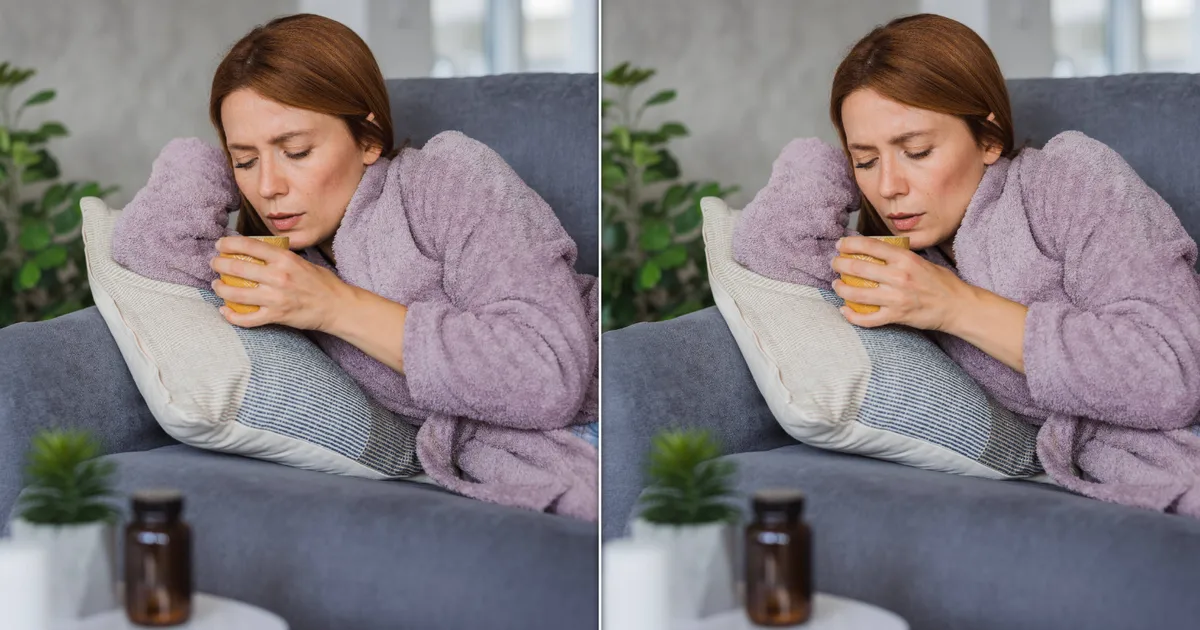Copyright HuffPost

Waking up with a cold isn’t anyone’s idea of a good time. Most people want to get rid of the virus as quickly as possible, often trying remedies like herbal concoctions, Vitamin-C-loaded supplements and even trying to “sweat out” the cold. Colds are most often caused by a virus known as the rhinovirus, making it different from other respiratory viruses such as COVID-19 (caused by SARS-CoV-2) and the flu (which is caused by the influenza virus). There are specific antiviral treatments for both COVID-19 and the flu (more on that below), but the same isn’t true for a cold. Advertisement Nonetheless, lots of products claim to be at-home fixes (and lots of people swear by them). But, do these things actually make colds go away faster? Is it actually possible to make your cold go away just by taking some supplements or buying a cold-busting product? Below, doctors share their thoughts: Nothing you do (or buy) is going to make you recover from a cold faster. When it comes to the research, “Nothing’s really held up in shortening the length of the cold,” said Dr. Tim Hendrix, chief medical officer of AdventHealth Centra Care in Florida. This goes for all of the so-called remedies; zinc, Vitamin C, echinacea. Dr. Irfan Hafiz, an infectious disease doctor at Northwestern Medicine in Chicago, agreed. “Most colds are viral, and they are going to run their course.” There isn’t a way to make the virus run through you faster, Hafiz added. Advertisement This is likely disappointing news to anyone who’s currently battling a cold or anyone who has spent money on cold-stopping products. All in all, you should treat your cold symptoms and take care of your body to get over your cold. “There aren’t really good case-controlled studies for a lot of these recommendations for the common cold,” Hendirx said. One study may claim a certain product shortens cold-symptom duration while another says the total opposite. This is true in the case of zinc, which had research backing it as a cold-shortener at one time, but newer research has failed to recreate the benefit. Vitamin C also doesn’t have consistent research behind it, and you often need very high doses of these items to have any kind of benefit. Advertisement “It can be very confusing as you look through and try to understand the evidence, but there is no quick fix, unfortunately ... and I just emphasize to patients: treat the symptoms. Use whatever over-the-counter helps to treat the symptoms,” Hendrix said. You don’t have to suffer and be miserable throughout the entire cold, Hafiz added. Whether you’re trying to relieve nasal congestion, cough, body aches or something else, there are over-the-counter treatments out there that can help make the suffering less as you recover. Beyond medication, it’s also important to take care of yourself. Meaning you should get enough rest, eat nutritious foods and drink lots of fluids. Advertisement “I love to sip on warm herbal teas when I have a cough and irritated throat or a sore throat, it’s very soothing,” Hendix said. “Also, a humidifier or vaporizer may make some people feel better and make it easier to sleep,” added Dr. Dean Blumberg, the chief of pediatric infectious diseases at UC Davis Health in California. Lozenges can be soothing, too, Hendrix said. “But again, these things aren’t going to take [your cold] away, but it helps minimize the effects on you.” Advertisement Most people recover in about a week from a cold, but if you have a history of heart conditions, kidney conditions or are elderly, you may require additional medical support, said Hafiz. “If you do have significant medical problems, let your physician know,” Hafiz added. This could include a high fever that won’t go away, dehydration or difficulty keeping food down. You shouldn’t ignore these kinds of symptoms. But, for those who are otherwise healthy, colds resolve quickly and easily on their own. Advertisement Antibiotics won’t cure a cold, either. It’s common for people to request antibiotics to help fight the sniffles, but that isn’t helpful. The cold is a virus, and antibiotics don’t treat viruses, said Hendrix. “Asking for an antibiotic to make your cold go away faster is not going to help, and it actually contributes to bacterial resistance in the community,” he said. Meaning, taking antibiotics too often, and for things that don’t require them, can cause the medication not to work when you actually need it. “These are conversations I have in urgent care on a daily basis. People want that antibiotic to make them feel better faster, but it’s not going to get rid of the virus and those symptoms,” Hendrix added. Advertisement “Really, there isn’t much you can do. You’ve got to weather the storm, realizing most upper respiratory viruses will take anywhere from five to seven days to completely resolve,” Hendrix said. There are antiviral medications available to treat other fall and winter respiratory viruses such as the flu and COVID-19, which both can appear similar to a cold when they’re mild, said Blumberg. If you test positive for COVID-19 or the flu, there’s medications that can help you get better faster. Advertisement “I just also encourage people to make sure you’re up-to-date with all your vaccinations,” Blumberg said. There are vaccines for flu, COVID-19 and even RSV. And these shots can help keep these viruses from progressing to a severe place. While vaccination is protective against these viruses, it won’t help your cold, and neither will supplements that claim to be cold cures. YourSupportMakes The Story Your SupportFuelsOur Mission Your SupportFuelsOur Mission Join Those Who Make It Possible HuffPost stands apart because we report for the people, not the powerful. Our journalism is fearless, inclusive, and unfiltered. Join the membership program and help strengthen news that puts people first. We remain committed to providing you with the unflinching, fact-based journalism everyone deserves. Thank you again for your support along the way. We’re truly grateful for readers like you! Your initial support helped get us here and bolstered our newsroom, which kept us strong during uncertain times. Now as we continue, we need your help more than ever. We hope you will join us once again. We remain committed to providing you with the unflinching, fact-based journalism everyone deserves. Thank you again for your support along the way. We’re truly grateful for readers like you! Your initial support helped get us here and bolstered our newsroom, which kept us strong during uncertain times. Now as we continue, we need your help more than ever. We hope you will join us once again. Support HuffPost Already a member? Log in to hide these messages.



